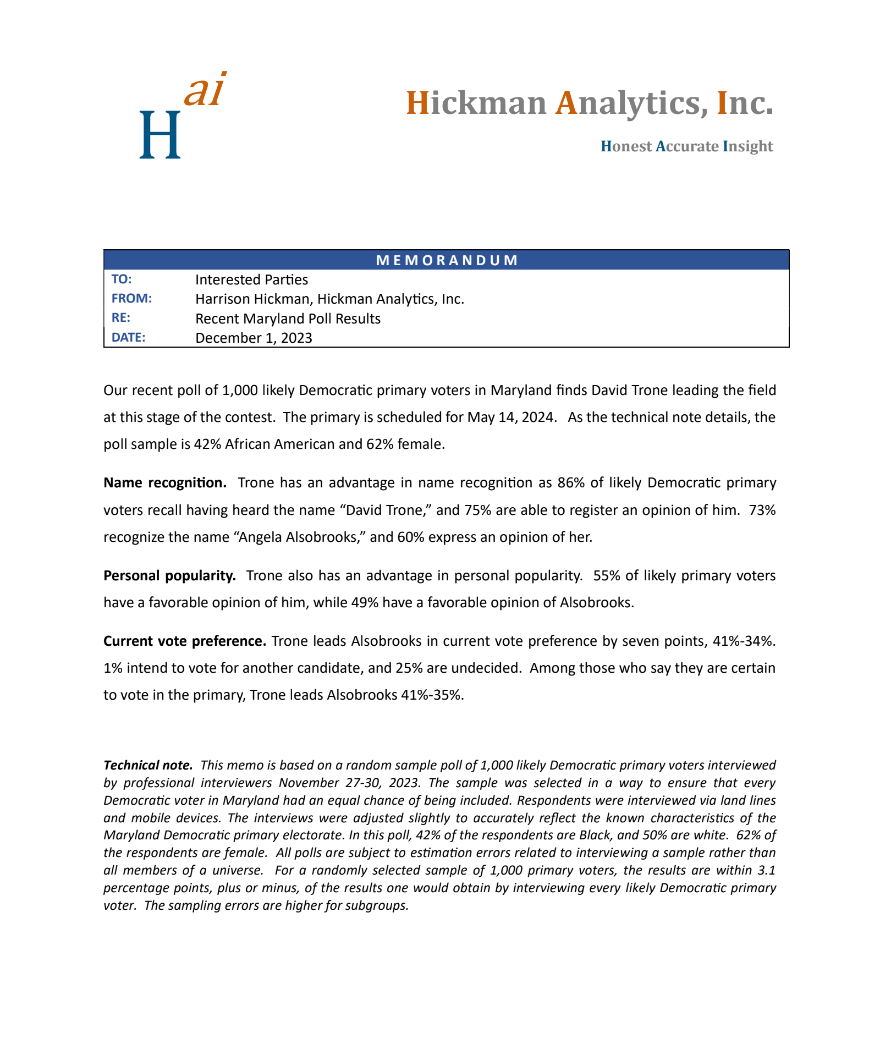By Adam Pagnucco.
Congressman David Trone has released an internal polling memo that claims he has a seven point lead over Prince George’s County Executive Angela Alsobrooks in the U.S. Senate race.
The polling memo from Hickman Analytics can be found here. Its text is reprinted below.
*****
Memorandum
To: Interested Parties
From: Harrison Hickman, Hickman Analytics, Inc.
Re: Recent Maryland Poll Results
Date: December 1, 2023
Our recent poll of 1,000 likely Democratic primary voters in Maryland finds David Trone leading the field at this stage of the contest. The primary is scheduled for May 14, 2024. As the technical note details, the poll sample is 42% African American and 62% female.
Name recognition. Trone has an advantage in name recognition as 86% of likely Democratic primary voters recall having heard the name “David Trone,” and 75% are able to register an opinion of him. 73% recognize the name “Angela Alsobrooks,” and 60% express an opinion of her.
Personal popularity. Trone also has an advantage in personal popularity. 55% of likely primary voters have a favorable opinion of him, while 49% have a favorable opinion of Alsobrooks.
Current vote preference. Trone leads Alsobrooks in current vote preference by seven points, 41%-34%. 1% intend to vote for another candidate, and 25% are undecided. Among those who say they are certain to vote in the primary, Trone leads Alsobrooks 41%-35%.
Technical note. This memo is based on a random sample poll of 1,000 likely Democratic primary voters interviewed by professional interviewers November 27-30, 2023. The sample was selected in a way to ensure that every Democratic voter in Maryland had an equal chance of being included. Respondents were interviewed via land lines and mobile devices. The interviews were adjusted slightly to accurately reflect the known characteristics of the Maryland Democratic primary electorate. In this poll, 42% of the respondents are Black, and 50% are white. 62% of the respondents are female. All polls are subject to estimation errors related to interviewing a sample rather than all members of a universe. For a randomly selected sample of 1,000 primary voters, the results are within 3.1 percentage points, plus or minus, of the results one would obtain by interviewing every likely Democratic primary voter. The sampling errors are higher for subgroups.

